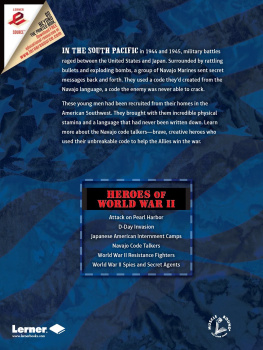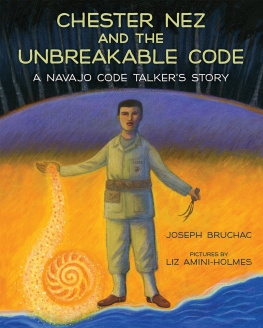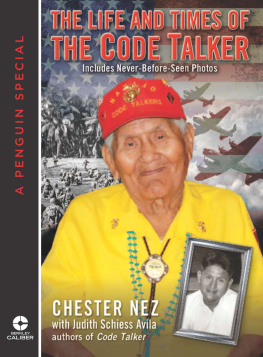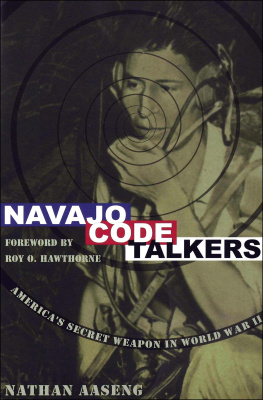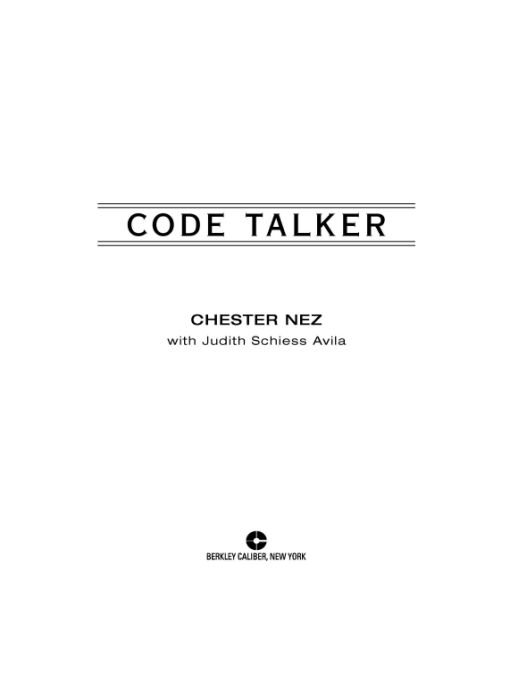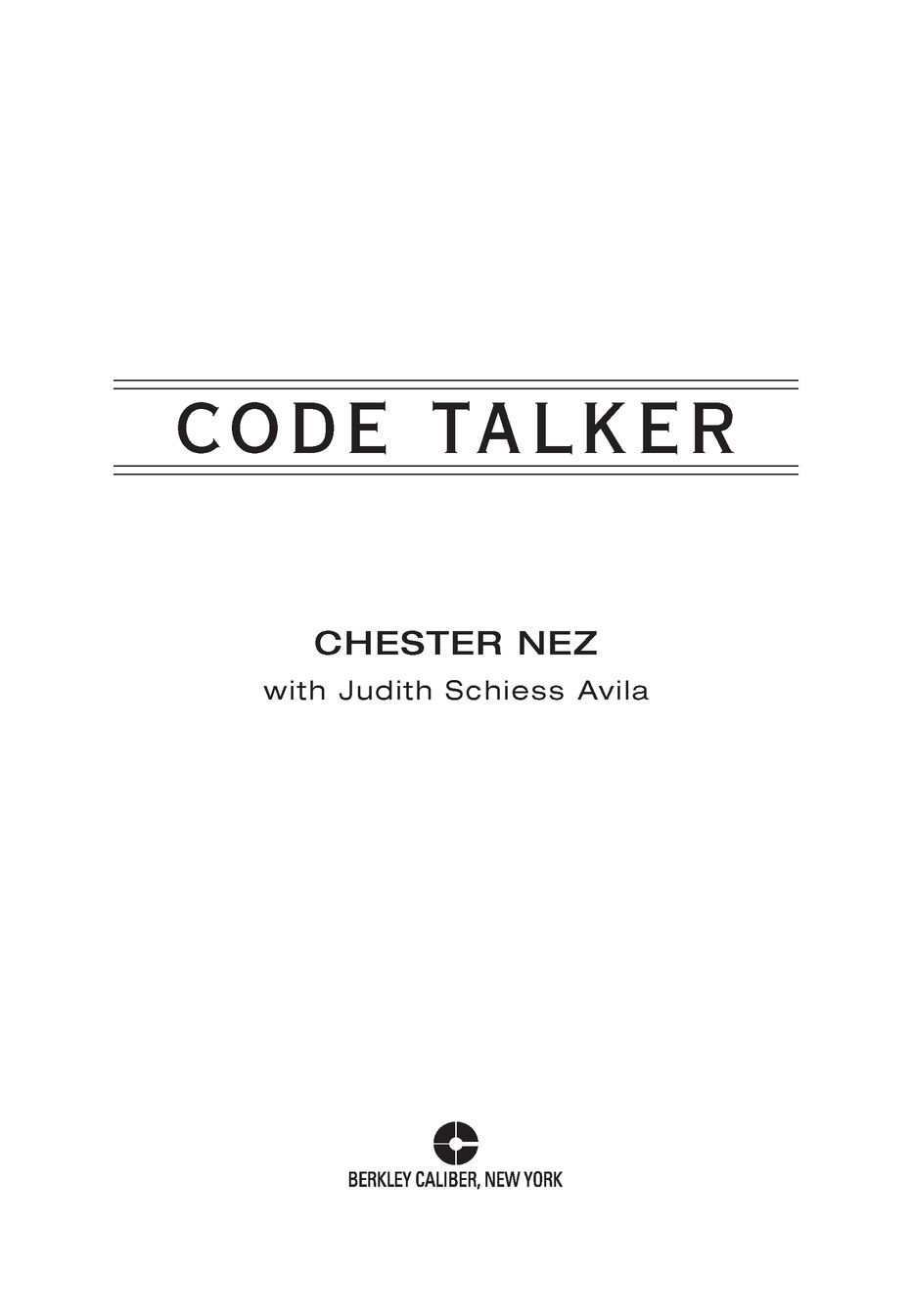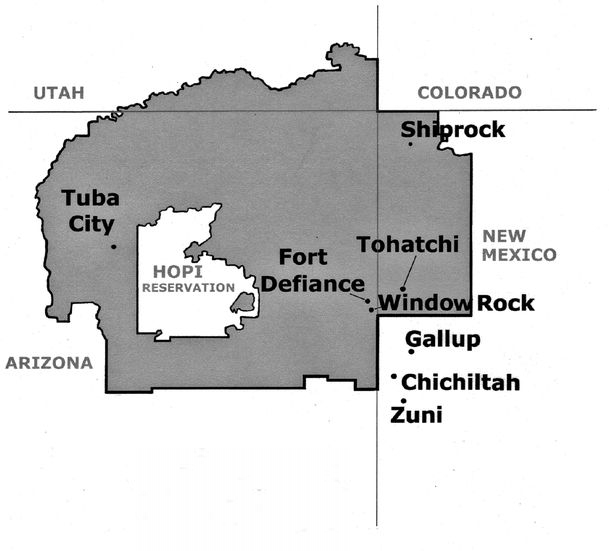Table of Contents
Most Berkley Caliber Books are available at special quantity discounts for bulk purchases for sales promotions, premiums, fund-raising, or educational use. Special books, or book excerpts, can also be created to fit specific needs.
For details, write: Special Markets, The Berkley Publishing Group, 375 Hudson Street, New York, New York 10014.
This book is dedicated to the 420 World War II Navajo Marine code talkersmen who developed and implemented an unbreakable communications system that helped ensure the American defeat of the Japanese in the South Pacific.
When the war ended, other combatants were free to discuss their roles in the service and to receive recognition for their actions. But the Marines instructed us, the code talkers, to keep our accomplishments secret. We kept our own counsel, hiding our deeds from family, friends, and acquaintances. Our code was finally declassified in 1968, twenty-three years after the wars end.
This book may be my story, but it is written for all of these men.
May they and their loved ones walk in beauty.
FOREWORD
by Senator Jeff Bingaman
The memoir that follows is the most recent example of courage from Chester Nez. Long ago, he and his fellow Navajo code talkers were brave enough to leave the homes they loved to support a country that often spurned them. With intelligence, skill, and courage they were a significant factor hastening the Allied victory in the Pacific.
Employing the Navajo language for secure communication was a masterstroke that was successful only because Navajos themselves were recruited to serve as Marine Corps Radio Operators. Using the Navajo language, they developed and transmitted the code, which proved unbreakable. When the war was over, they continued to protect the codeand their part in the victoryuntil it was declassified twenty-three years after the conclusion of World War II. Deemed TOP SECRET for decades, it is appended to this memoir.
Only in 1968 did their contribution become known. In 2000, the Congress of the United States, in an effort to recognize and honor the heroic contributions of the code talkers, authorized that the Congressional Gold Medal be struck in their honor. In July 2001, in the Rotunda of the Capitol, the presentation was made, and long-delayed thanks expressed.
Chester Nez, one of the twenty-nine original code talkers, offers this memoir of his American life before, during, and after World II. It is a treasure, and so is he.
Jeff Bingaman
United States Senator for New Mexico
Senator Bingaman and Senator Daniel Inouye of Hawaii sponsored the Honoring the Navajo Code Talkers Act in 2000.
NAVAJO NATION
PROLOGUE
Im no hero. Chester Nez chuckles. I just wanted to serve my country.
I just wanted to serve my country. To appreciate that remark, you need to know a little modern Native American history. In Chesters home state of New Mexico, Native Americans were still denied the vote when he volunteered as a Marine in World War II. Nevertheless, the military called upon Chester and fellow Navajos to devise a code that many analysts believe assured the United States defeat of Japan in the South Pacific.
Chester, eighty-six years old when I met him, now ninety, is the only living original code talker. These were the twenty-nine men who first devised the famous Navajo code and took it into battle against the Japanese.
I try to picture this soft-spoken man in battle, an image that is always elusive. Instead I see the vast expanses of his grandmothers land in New Mexico, with Chester, a tiny figure in the sunbaked landscape, herding sheep. Or I see the little boy who, at boarding school, was punished for speaking his native Navajo language, the very language that led to the famous code.
When Chester, his son Mike, and I first met, we did not know that wed create this book. An interview was what Chester and Mike had in mind. But talking for a couple of hours wasnt enough. I have never been in the military, and I am not Navajo. I did not know what to expect. So, like a fisherman I cast my questions into vast unknown waters and pulled in an assortment of remarkable narratives. I first learned about Chesters role as a World War II code talker. The saga of the devastating war, over before I was born, captivated me. Then, hearing of his childhood in the Checkerboard Area in New Mexico, where a difficult life made him strong, pulled me back even further into a rich history. Everything began to fit together, each piece a necessary part of the whole.
After thinking about it for a couple of days, Chester agreed to let me write his biography. But early on he expressed some concerns. What if his story wasnt long enough to fill a book? He hadnt done any more than so many other men, so why were we writing about him? What if he forgot something important, or remembered something incorrectly? What if his story wasnt exciting enough?
Readers of this memoir will realizeI hopethat Chesters fears soon proved baseless.
Chester grew up on the Checkerboard. His familys land sat side by side with spreads owned by Anglo-Americans, Hispanics, and other Navajos, not far from the huge Navajo Nationcommonly called the Navajo Reservationthat straddled the borders of Arizona, New Mexico, and Utah, and bordered on Colorado. Life in the Navajo Nation was difficult when Chester was a child. Life on the Checkerboard was even more difficult.
We could go for three or four days without eating, Chester recalls. Everything always comes last to the Checkerboard. My sister Doras house is wired for electricity, but she still has no power. They say it is coming soon.
That was in 2007. Doras house is located on the Checkerboard land where Chester grew up. She died in 2008, still with no electricity.
The account of Chesters life is important because it tells of a people whose deeds have too often been overlooked. I believe this is the first book to tell of the full life experience of a code talker who grew up as most Navajos then didherding sheep, attending boarding school, eking out a day-to-day living. This is significant. In Code Talker, the memoir of World War II Navajo Marine Chester Nez, Chester takes a close look at his childhood, a childhood that, in broad strokes, represents the formative years of an entire generation of Navajos. Code Talker examines the courage and spirit that imbued the Marines in World War II who developed and utilized the famous, unbreakable Navajo code. In doing this, it highlights a significant contribution made by an indigenous culture. The multifaceted Navajo language enabled that code to be developed, demonstrating how the diversity that defines our nationdiversity of color, of background, of languagecontributes to our strength.
There are some things Chester remembers that dont jibe completely with history as read in a textbook. That is to be expected, especially concerning the wartime events experienced by the code talkers. The code talkers were such a well-kept secret that their very existence was classified for twenty-three years following the close of hostilities in World War II. In 1968, when their contributions to the war effort were finally declassified, their history was available to be recorded for the first time. Much of this history relied on memories that were nearly a quarter of a century old.


